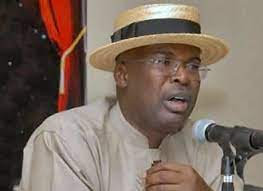The cost of providing security for the smooth operation of the Oil and Gas Industry in Nigeria is driving up production cost per barrel in the country, the Minister of State Petroleum Resources, Chief Timipre Sylva has said.
Sylva who stated this in Abuja on Monday at the 4th annual Valuechain lecture and award pointed out that for oil production cost per barrel to fall, the cost of security has to be lower.
The Minister, who expressed satisfaction at new measures put in place by Nigerian Maritime Administration and Safety Agency, NIMASA, to check insecurity in Nigerian waters, said the petroleum industry must work in synergy with NIMASA for a coordinated approach to the challenge.
He said: “I am very happy with the facilities NIMASA have in place to tackle insecurity in the maritime sector because if you want to really talk about reducing the cost of production in the oil and gas sector, you must touch security.
“Security is one of the main cost drivers in the industry and that is what we have been discussing. So if they are going to tackle security in the maritime sector they must work with the oil and gas sector for it impact Nigeria’s economy fully.
“This is because today the oil and gas sector is bedevilled by a lot of security issues which have brought up the cost of production to levels that are too high”, he added.
He pointed out that with the passage of the Petroleum Industry Bill, PIB, activities will pick in the industry, noting that for sustainability, the security challenges must be addressed.
Chief Sylva who also represented Vice President Yemi Osinbajo said Federal Government has ordered the reduction of the Nigerian Port Authority charge and NIMASA fee in the petrol pricing template as measures to lower the cost and impact on Nigerians.
He said the government was working out ways to ensure that indigenous ship owners are patronized to grow local participation in the maritime sector.
Also speaking at the event, the Director/CEO, Department of Petroleum Resources, DPR, Engr. Sarki Auwalu in his lead paper, pointed out that for hundreds of years, the maritime and the oil and gas industry have enjoyed Siamese-twin type relationship creating and sharing value together.
“As an example”, Auwalu explained, “the maritime industry is responsible for hauling oil and gas all around the world while oil and gas have fueled the maritime industry. Imagine about 700 million barrels of crude cargoes and 22 million tonnes of LNG are transported by over a thousand ocean-going vessels from Nigeria to destinations across the globe annually!
“To put this into context, in 2019, the year before the global COVID-19 pandemic, according to the Nigerian Bureau of Statistics (NBS), the value of total foreign trade recorded for Nigeria stood at N36.1 trillion.
“This was a 14 per cent increase over 2018, and the maritime industry was responsible for the transportation and facilitation of 90% of these trades. Meanwhile, of these trades, Petroleum and Petroleum Products account for about 76 per cent of the export”, he added.
In his keynote address, the Group Managing Director of the Nigerian National Petroleum Corporation, NNPC, Mallam Mele Kyari said there are over 20,000 ships working for the oil and gas in the Nigeria waters with an annual expenditure of over $600 million in the upstream sector.
Represented by the COO, Gas and Power, Engr. Yusuf Usman, Kayri added: “The oil sector spend $3 billion on marine vessels between 2014 and 2018 of which 73% was spent on the crude boat, security and power supply intervention.
“This reflects the huge potential in the sector as we aspire to grow our production to 3 million barrels per day. Without doubt, the potential of the Nigeria blue economy is huge and remain largely untapped for the benefit of the country”.
Earlier in his welcome remark, the Publisher and Editor in Chief of Valuechain Magazine, Musa Bashir Usman noted that the lecture with the theme: “Enhancing Effective Synergy between Oil & Gas and Maritime sectors for a greater value creation,” is very fitting, considering the fact that maritime had always been of strategic importance to the oil and gas industry ever since Nigeria began exporting crude oil.
“The importance of the two sectors is attested to by the value they add to the Nigerian economy. The maritime, as well as the oil & gas sector, have a greater potential contribution to Nigeria’s Gross Domestic Product (GDP)”, he added.

